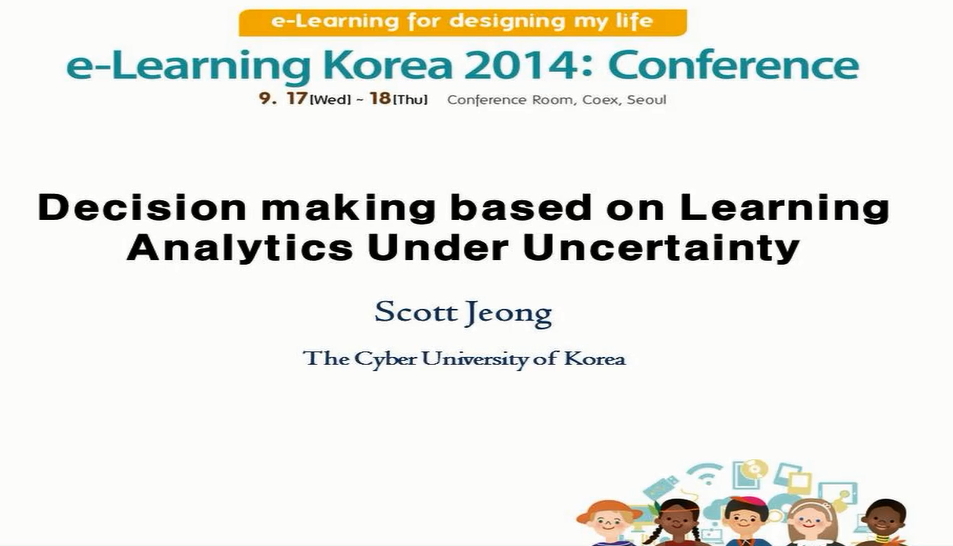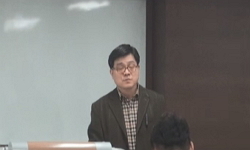The purpose of this study is to explore an alternative direction for a competence-based curriculum in order to cope with an uncertain society by focusing on an ontological approach. This is because a new framework of learning in an uncertain world sho...
http://chineseinput.net/에서 pinyin(병음)방식으로 중국어를 변환할 수 있습니다.
변환된 중국어를 복사하여 사용하시면 됩니다.
- 中文 을 입력하시려면 zhongwen을 입력하시고 space를누르시면됩니다.
- 北京 을 입력하시려면 beijing을 입력하시고 space를 누르시면 됩니다.

불확실성 시대의 학습의 속성에 비추어 본 역량기반 교육과정의 대안적 방향 탐색: 존재론적 접근을 중심으로 = Exploring an Alternative Direction for a Competence-Based Curriculum in an Age of Uncertainty: An “Ontological Approach”
한글로보기https://www.riss.kr/link?id=A105275424
- 저자
- 발행기관
- 학술지명
- 권호사항
-
발행연도
2018
-
작성언어
-
- 주제어
-
KDC
300
-
등재정보
KCI등재
-
자료형태
학술저널
- 발행기관 URL
-
수록면
45-69(25쪽)
-
KCI 피인용횟수
20
- 제공처
-
0
상세조회 -
0
다운로드
부가정보
다국어 초록 (Multilingual Abstract)
The purpose of this study is to explore an alternative direction for a competence-based curriculum in order to cope with an uncertain society by focusing on an ontological approach. This is because a new framework of learning in an uncertain world should deal with “being” as well as “knowing” and “doing.” The ontological approach is closely related to the value and ethics of learning. From this perspective, questions such as “who am I?”, “what is my identity?” and “how should I live in the conditions of uncertainty?” are considered essential. This study suggests a mode 2 competence-based curriculum focused on an ontological approach beyond the current mode 1 competence-based curriculum focused on the performative approach. This study firstly explored the changing attributes of future learning in conditions of uncertainty in order to understand the context of the emerging ontological approach. Next, in the light of the new framework of learning, it discussed the characteristics and limits of the current mode 1 competence-based curriculum. Finally, it concluded by suggesting two alternative designs for a mode 2 competence-based curriculum from an ontological approach.
참고문헌 (Reference)
1 이근호, "핵심역량 중심의 교육과정 재구조화 방안 연구" 한국교육과정평가원 2013
2 박승억, "학문의 진화" 글 항아리 2015
3 소경희, "학교교육의 맥락에서 본 ‘역량(competency)’의 의미와 교육과정적 함의" 한국교육과정학회 25 (25): 1-22, 2007
4 Heidegger, M, "존재와 시간" 까치글방 2008
5 황규호, "일반역량 교육 논의의 쟁점 분석" 한국교육과정학회 35 (35): 247-271, 2017
6 윤정일, "인간 능력으로서의 역량에 대한 고찰 : 역량의 특성과 차원" 한국교육학회 45 (45): 233-260, 2007
7 김광민, "역량기반 교육의 매력과 한계" 한국도덕교육학회 20 (20): 171-197, 2009
8 소경희, "역량기반 교육의 교육과정사적 기반 및 자유교육적 성격 탐색" 한국교육과정학회 27 (27): 1-20, 2009
9 백남진, "역량 기반 교과 교육과정에서 기준과 수행의 의미" 한국교육과정학회 32 (32): 17-46, 2014
10 이상은, "비교교육의 관점에서 살펴본 한국 핵심역량 교육정책의 특징과 과제: 초ㆍ중등교육을 중심으로" 한국교육학회 55 (55): 67-95, 2017
1 이근호, "핵심역량 중심의 교육과정 재구조화 방안 연구" 한국교육과정평가원 2013
2 박승억, "학문의 진화" 글 항아리 2015
3 소경희, "학교교육의 맥락에서 본 ‘역량(competency)’의 의미와 교육과정적 함의" 한국교육과정학회 25 (25): 1-22, 2007
4 Heidegger, M, "존재와 시간" 까치글방 2008
5 황규호, "일반역량 교육 논의의 쟁점 분석" 한국교육과정학회 35 (35): 247-271, 2017
6 윤정일, "인간 능력으로서의 역량에 대한 고찰 : 역량의 특성과 차원" 한국교육학회 45 (45): 233-260, 2007
7 김광민, "역량기반 교육의 매력과 한계" 한국도덕교육학회 20 (20): 171-197, 2009
8 소경희, "역량기반 교육의 교육과정사적 기반 및 자유교육적 성격 탐색" 한국교육과정학회 27 (27): 1-20, 2009
9 백남진, "역량 기반 교과 교육과정에서 기준과 수행의 의미" 한국교육과정학회 32 (32): 17-46, 2014
10 이상은, "비교교육의 관점에서 살펴본 한국 핵심역량 교육정책의 특징과 과제: 초ㆍ중등교육을 중심으로" 한국교육학회 55 (55): 67-95, 2017
11 이광우, "미래 한국인의 핵심 역량 증진을 위한 초ㆍ중등학교 교육과정 설계 방안 연구" 한국교육과정평가원 2009
12 최상덕, "미래 인재 양성을 위한 핵심역량 교육및 혁신적 학습생태계 구축(Ⅱ)" 한국교육개발원 2014
13 Wheelahan, L., "Why knowledge matters in curriculum: A social realist argument" Routledge 2010
14 Willbergh, I., "The problems of ‘competence’ and alternatives from th Scandinavian perspective of Bildung" 47 (47): 334-354, 2015
15 Hodge, S., "The origins of competency-based training" 47 (47): 179-209, 2007
16 Gibbons, M., "The new production of knowledge: The dynamics of science and research in contemporary societies" Sage 1994
17 Barnett, R., "The limits of competence" Open University Press 1996
18 Lukasiewicz, J., "The ignorance explosion: Understanding industrial civilization" Carleton University 1994
19 Biesta, G., "The future of teacher education: Evidence, competence or wisdom?" 3 (3): 8-21, 2012
20 OECD, "The future of education and skills: Education 2030" OECD 2017
21 OECD, "The definition and selection of key competencies: Executive summary" OECD 2005
22 Barnett, R., "Supercomplexity and the curriculum" 25 (25): 255-265, 2000
23 Nowotny, H., "Re-thinking science: Knowledge and the public in an age of uncertainty" Polity 2001
24 Bernstein, B., "Pedagogy, symbolic control and identity: Theory, research, critique" Taylor and Francis 1996
25 Young, M., "Overcoming the crisis in curriculum theory: A knowledge-based approach" 45 (45): 101-118, 2013
26 Barnett, R., "Learning for an unknown future" 31 (31): 65-77, 2012
27 Barnett, R., "Learning about learning: A conundrum and a possible resolution" 9 (9): 5-13, 2011
28 "Learning Framework 2030. (제 6차 비공식 작업반 회의자료: EDU/EDPC(2017)/25)"
29 Barnett, R., "Knowing and becoming in the higher education curriculum" 34 (34): 429-440, 2009
30 Gordon, J., "Key competences in Europe: Opening doors for lifelong learners across the school curriculum and teacher education" CASE 2009
31 Dall’Alba, G., "Improving teaching: Enhancing ways of being university teachers" 24 (24): 361-372, 2005
32 Thomson, I., "Heidegger on ontological education, or: how we become what we are" 44 (44): 243-268, 2001
33 Fadel, C., "Four-dimensional education: The competencies leaners need to succeed" Center for Curriculum Redesign 2015
34 Dall’Alba, G., "An ontological turn for higher education" 32 (32): 679-691, 2007
35 이광우, "2015 개정 교육과정에서의 핵심개념, 핵심역량" 11-29, 2015
36 교육부, "2015 개정 교육과정 질의ㆍ응답 자료" 교육부 2015
37 교육부, "2015 개정 교육과정 안내서: 배움을 즐기는 행복교육" 교육부 2017
동일학술지(권/호) 다른 논문
-
- 한국교육과정학회
- 엄인주 ( In-ju Eom )
- 2018
- KCI등재
-
학교 중심 교육 개혁 맥락에서 교사의 실천 이해: ‘교사 행위주체성’ 개념을 중심으로
- 한국교육과정학회
- 소경희 ( Kyunghee So )
- 2018
- KCI등재
-
- 한국교육과정학회
- 김란주 ( Lanju Kim )
- 2018
- KCI등재
-
우리나라 초등통합교육과정의 과거와 현재, 그리고 새로운 이야기
- 한국교육과정학회
- 조상연 ( Sang-yeon Jo )
- 2018
- KCI등재
분석정보
인용정보 인용지수 설명보기
학술지 이력
| 연월일 | 이력구분 | 이력상세 | 등재구분 |
|---|---|---|---|
| 2027 | 평가예정 | 재인증평가 신청대상 (재인증) | |
| 2021-01-01 | 평가 | 등재학술지 유지 (재인증) |  |
| 2018-01-01 | 평가 | 등재학술지 유지 (등재유지) |  |
| 2015-01-01 | 평가 | 등재학술지 유지 (등재유지) |  |
| 2011-01-01 | 평가 | 등재학술지 유지 (등재유지) |  |
| 2009-01-01 | 평가 | 등재학술지 유지 (등재유지) |  |
| 2006-01-01 | 평가 | 등재학술지 선정 (등재후보2차) |  |
| 2005-05-31 | 학술지명변경 | 외국어명 : 미등록 -> The Journal of Curriculum Studies |  |
| 2005-01-01 | 평가 | 신청제한 (등재후보2차) |  |
| 2004-01-01 | 평가 | 등재후보 1차 PASS (등재후보1차) |  |
| 2003-01-01 | 평가 | 등재후보학술지 유지 (등재후보1차) |  |
| 2001-07-01 | 평가 | 등재후보학술지 선정 (신규평가) |  |
학술지 인용정보
| 기준연도 | WOS-KCI 통합IF(2년) | KCIF(2년) | KCIF(3년) |
|---|---|---|---|
| 2016 | 2.81 | 2.81 | 2.75 |
| KCIF(4년) | KCIF(5년) | 중심성지수(3년) | 즉시성지수 |
| 2.65 | 2.69 | 3.561 | 0.48 |





 KISS
KISS






